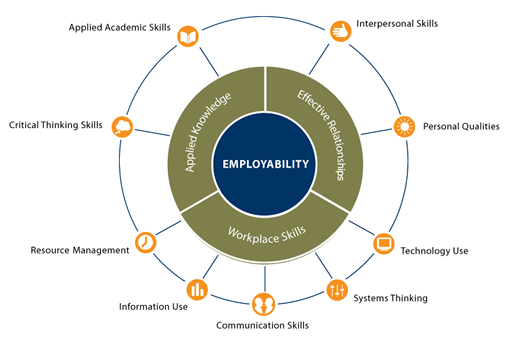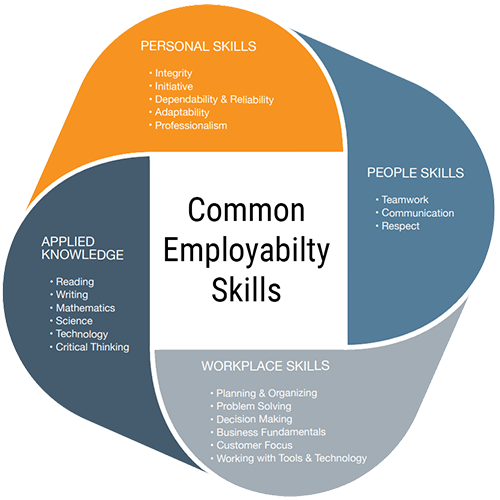
Employability Skills
Whether referred to as employability skills, soft skills, workplace skills, or other similar terms, the news from employers is clear: entry-level employees are deficient in many of these skills. What is not clear, is how to categorize employability skills or prioritize their instruction. Below are frameworks commonly used and referenced by educators and employers in the United States.
Employability Skills Framework, U.S. Department of Education

Successful careers are built on solid personal and interpersonal skills. Defining, measuring, and building these skills—even naming them—can be challenging. To leverage and connect the efforts of policy makers, educators, and employers, the U.S. Department of Education compiled the Employability Skills Framework and developed related tools, media and resources.
The Framework advances a unifying set of skills that cuts across the workforce development and education sectors based on an inventory of existing employability skills standards and assessments.
It was developed as part of the Support for States Employability Standards in Career and Technical Education (CTE) and Adult Education project, an initiative of the Office of Career, Technical, and Adult Education. Framework development was guided by CTE, adult education, workforce development and business organizations, and twelve federal agencies.
- Download a one-page handout on the Employability Skills Framework
- Explore an interactive version of the Framework as well as related tools and videos.
Common Employability Skills Framework, National Network
The National Network of Business and Industry Associations, an initiative co-founded by Business Roundtable and ACT Foundation, created a framework that identifies a core set of fundamental skills that employees need, no matter the industry or job, along with a common vocabulary to explain them.
The Common Employability Skills (CES) Framework defines foundational skills needed to succeed in any career or industry. It includes core competencies in four categories – personal skills, people skills, applied knowledge and workplace skills – and the knowledge, skills and abilities that make up each of those competencies. The competencies are from industry competency models that were created and vetted by the industries involved in the development of the Framework.
- Download the framework.

